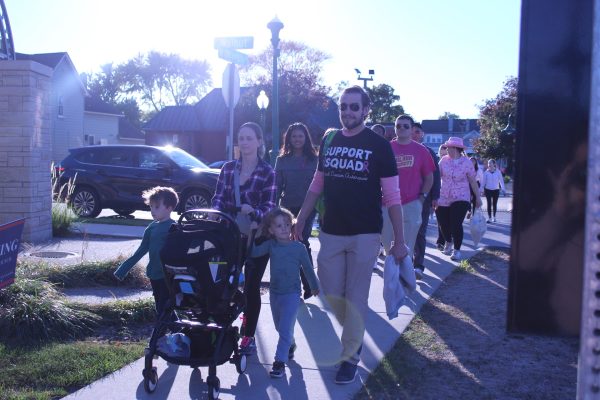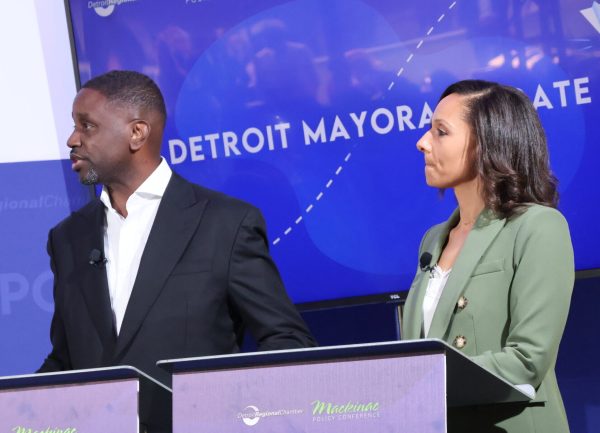OU partners with Baldwin, Ohio Northern on Great Lakes Poll measuring next election
In an effort to monitor the contentious midwestern electorate, Oakland University is partnering with Ohio Northern University and Baldwin Wallace University to conduct Baldwin’s 2020 Great Lakes Poll.
Unlike most of the polls highlighted on the campaign trail that focus on a single state, the Great Lakes Poll surveys self-selected registered voters in Michigan, Ohio, Wisconsin and Pennsylvania.
“We started [running polls] in 2016,” said Lauren Copeland, associate director of Baldwin Wallace’s Community Research Institute and Great Lakes Poll project leader. “I was interested in whether Ohio was still a battleground state or swing state.”
According to Copeland, Ohio elected almost only Republican politicians in 2018, and Donald Trump won the state by eight points in 2016. This looked as though Ohio was moving in a more partisan direction than it had been in the past.
A further look at the region showed that Ohio was not the only state to take a partisan turn. Michigan, Wisconsin and Pennsylvania all voted for Barack Obama in 2012, and then for Trump in 2016, though the Republican’s win was by less than a point.
“That led me to having two research questions, which was [first], ‘Is Ohio still a battleground or swing state?’ and second, ‘Do Democrats have a chance of flipping these states back to the Democratic Column in 2020?’” Copeland said.
The poll will be sent out to respondents four times, the first of which has already been completed and the results published. The next three times will be further into the primaries, before the party conventions and before the November election.
The results of the first poll have come in, and political scientists are already breaking them down.
“We see a very interesting switch to what we saw in 2016,” said Terri Towner, OU political science professor and one of the people involved in the survey. “One of the questions we asked was, ‘Are you certain you would vote against Donald Trump no matter whom the Democrats nominate for president?’ and almost 50% of Michignaders say, ‘Yes, I am almost certain to vote against Donald Trump.’”
However, this desire to vote for Democratic candidates is divided upon the lines of sex. 53% of Michigan women plan to vote for a Democrat, while only about 40% of Michigan men say they will do the same. About 27% of Michigan women and 41.5% of men say they will vote for the incumbent Trump, while 20.1% of women and 18.9% of men remain undecided.
“I also thought it was interesting … that Michael Bloomberg is one of the top fivers,” Towner said. “He is breaking fourth among Democrats across the Great Lakes states, which we think is wild. Here is a candidate that has not been on the debate stage, who came into the race late and is polling well.”
The former New York City mayor is fourth in Michigan’s first choice poll at 9.1%. Elizabeth Warren takes third at 13.6%, Bernie Sanders comes in second at 21.6% and former Vice President Joe Biden is first at 27%. The percentage of undecided voters is 10.6%, technically the fourth most supported “candidate.”
“The ultimate [question] is, ‘Are Democrats going to take the White House in 2020?’” Copeland said. “We believe that if they are going to do it … it will be by bringing these states back into the Democratic column.”







